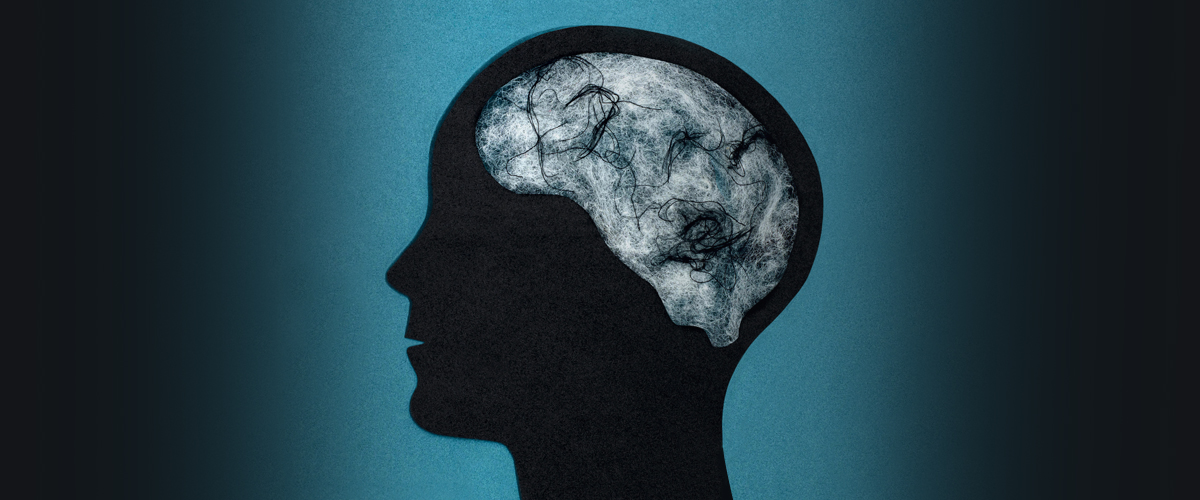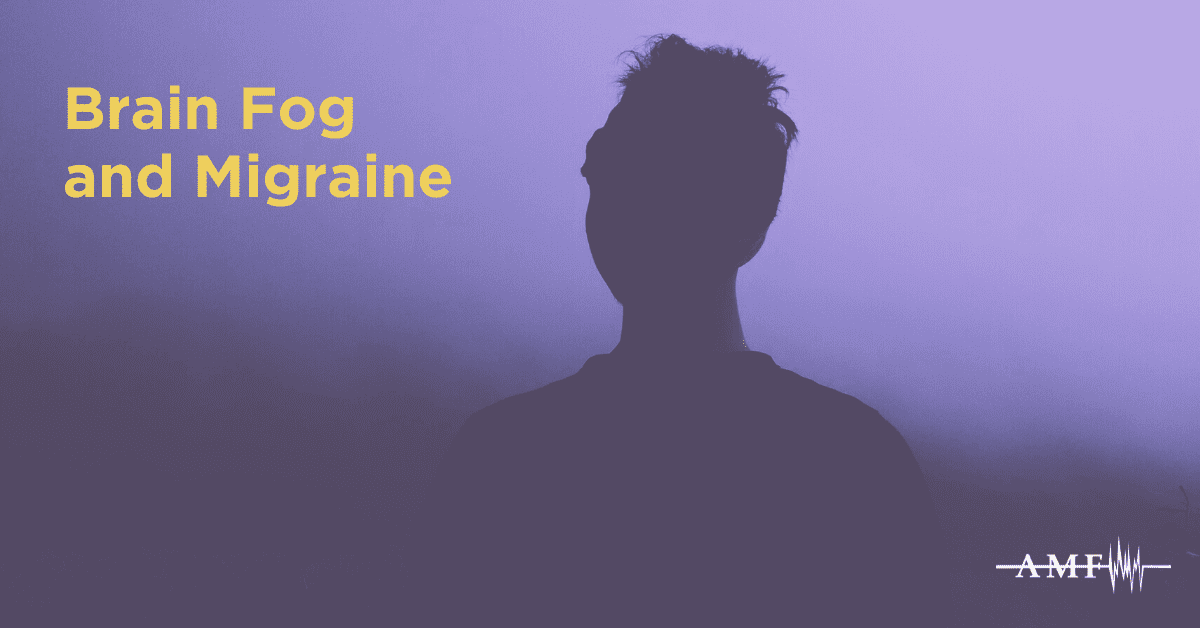How to Get Rid of Brain Fog Migraine: To alleviate brain fog migraine, stay hydrated and maintain consistent sleep patterns. Engage in regular physical activity and manage stress through relaxation techniques.
Brain fog migraines can leave you feeling mentally hazy and physically exhausted. This condition often accompanies chronic migraine episodes, impacting cognitive functions like memory, concentration, and decision-making. Sufferers seek relief; fortunately, lifestyle adjustments can make a significant difference. Staying well-hydrated and having a regular sleep schedule are foundational steps toward clarity.
Regular exercise boosts blood flow, enhancing brain function and potentially reducing the frequency of migraines. Stress management, possibly through mindfulness or yoga, is critical in mitigating brain fog. A balanced diet, perhaps supplemented with magnesium and B vitamins, can further support brain health. Consulting a healthcare professional is essential for personalized strategies and to rule out underlying conditions. Remember, these tips are starting points, and individual experiences may vary.
Identifying Brain Fog Migraine
Brain fog migraines can blur the lines between a typical headache and a complex neurological puzzle. For management to be effective, it is imperative to recognize the indicators. This condition affects concentration and memory and can disrupt daily activities.
Symptoms To Watch For
Key symptoms include:
- Memory Issues: Forgetting simple tasks or words is common.
- Concentration Problems: Staying focused becomes challenging.
- Clouded Thinking: Thoughts seem slow or hazy.
- Headache: A dull, persistent pain often accompanies brain fog.
Triggers And Causes
Understanding what sparks your brain fog migraine is vital. Common triggers are:
| Trigger Category | Examples |
|---|---|
| Dietary Factors | Caffeine, artificial sweeteners, alcohol |
| Environmental | Bright lights, loud noises, strong odors |
| Lifestyle | Poor sleep, high stress, lack of exercise |
| Hormonal Changes | Menstrual cycle, pregnancy, menopause |
Identifying the cause often requires tracking symptoms and exposure to potential triggers. A diary can help spot patterns.

Credit: virtualheadachespecialist.com
Impact On Daily Life
The Impact on Daily Life from brain fog migraine is significant. Individuals face daily disruptions. Tasks once simple now seem daunting. It affects work, relationships, and self-care routines. Understanding these impacts is crucial. Let’s explore further.
Cognitive Challenges
- Difficulty focusing on tasks
- Memory issues lead to missed deadlines
- Slow thought processing hinders problem-solving
- Confusion disrupts daily activities
Brain fog causes mental clarity to diminish. Completing work tasks becomes a battle. Remembering important information turns into a challenge.
Social And Emotional Effects
Brain fog from migraines affects emotions and social life. People may feel isolated due to their symptoms. They struggle to maintain friendships. Mood swings can create tension in relationships.
| Effect | Outcome |
|---|---|
| Isolation | Less interaction with friends |
| Emotional Exhaustion | Increased irritability and sadness |
Lifestyle Adjustments For Relief
Lifestyle Adjustments for Relief play a vital role in managing brain fog migraine. Simple changes in daily habits can significantly diminish the frequency and severity of symptoms. The following strategies focus on dietary modifications and physical activity.
Dietary Changes
Food choices can impact migraine symptoms. Introduce the following dietary adjustments:
- Stay Hydrated: Water is your best beverage throughout the day.
- Limit Caffeine: Reduce coffee, tea, and soda intake.
- Avoid Trigger Foods: Identify and eliminate personal migraine triggers.
- Regular Meals: Eat at consistent times to maintain blood sugar levels.
Exercise And Physical Activity
Regular exercise can help clear brain fog. Aim for:
- Daily Movement: Include walking or stretching in your routine.
- Cardiovascular Exercise: Engage in activities like cycling or swimming thrice a week.
- Strength Training: Build muscle to support overall health twice weekly.
- Relaxation Techniques: Practice yoga or tai chi to reduce stress.
Consistency with these lifestyle adjustments can lead to noticeable improvements in brain fog migraine.

Credit: www.youtube.com
Sleep’s Role In Alleviating Brain Fog
Sleep plays a crucial role in clearing brain fog related to migraines. Quality rest can significantly reduce symptoms and improve mental clarity. Let’s explore how enhancing sleep routines and understanding sleep patterns can help.
Improving Sleep Hygiene
To combat brain fog, establishing a consistent bedtime routine is vital. Here are practical steps:
- Establish a regular sleep routine by establishing a consistent bedtime and wake-up time each day.
- Keep your bedroom dark, quiet, and calm to promote deeper sleep.
- Give yourself at least one hour before bed to avoid using electronics and caffeine.
These changes encourage uninterrupted sleep, helping your brain recover and rejuvenate.
Understanding Sleep Patterns
Knowing how you sleep can unveil essential clues about your brain fog. Consider these tips:
- Track your sleep with a diary or an app to identify patterns or issues.
- Note how different activities or foods affect your sleep quality.
- Adjust your daytime habits based on your findings to enhance night rest.
Effective sleep tracking can lead to targeted changes, boosting overall brain function.
Hydration And Brain Function
Feeling foggy in your thoughts can be more than just a nuisance. Brain fog migraines can deeply affect your life. The brain thrives on proper hydration. Understanding the link between hydration and brain function is critical to combating brain fog.
Benefits Of Staying Hydrated
Hydration boosts brain health. It helps in maintaining focus and clarity. A well-hydrated brain can process information faster. It also reduces the risk of migraines.
- Improves mood and concentration
- Enhances memory function
- Prevents and alleviates headaches
- Keeps brain cells functioning optimally
Tips For Adequate Water Intake
Drinking enough water is vital for brain health. Don’t forget to remain hydrated by using these tips:
| Tip | Details |
|---|---|
| Start your day with water | Drink a glass upon waking to replenish lost fluids. |
| Use a water bottle | Carry it with you so you may drink it all day. |
| Eat water-rich foods | Fruits and vegetables add to your hydration. |
| Set reminders | Use your phone to remind you to take water breaks. |
Remember, your brain needs water just like your body does. Keep a bottle close, and take a sip often. Your mind will thank you for it!

Credit: americanmigrainefoundation.org
Mindfulness And Relaxation Techniques
Brain fog migraine can be a draining experience.
Mindfulness and relaxation techniques often help clear the mind and ease symptoms.
Let’s explore how meditation and breathing exercises can combat brain fog migraine.
Meditation Practices
Meditation creates a sense of calm.
It allows the brain to rest.
Regular meditation can reduce stress.
Stress often triggers migraines.
Here are simple steps to start meditating:
- Find a quiet space.
- Sit or lie comfortably.
- Close your eyes.
- Focus on your breath.
- If your thoughts stray, gently bring them back.
Practice for five minutes daily.
Increase the time as you get comfortable.
Breathing Exercises
Breathing exercises can also relieve brain fog and migraines.
They increase oxygen flow.
They also reduce tension.
Try these simple breathing techniques:
- Breathe deeply: Take a deep breath, hold it, and release it slowly.
- Counted breaths: Inhale for four counts, hold for seven, and exhale for eight.
- Abdominal breathing: Place one hand on your belly. With every breath, feel it rise and fall.
Do these exercises for a few minutes.
Repeat several times a day.
Navigating Stress And Anxiety
Many people experience brain fog during migraines. This mental cloudiness can link to stress and anxiety. Understanding how to manage these feelings is vital to clearing your mind.
Stress Management Strategies
Effective stress management plays a crucial role in combating brain fog. Here are proven strategies:
- Regular exercise boosts your mood and clears your mind.
- Meditation and deep breathing exercises help reduce stress levels.
- Create a consistent sleep schedule to improve brain function.
- Limit caffeine and sugar intake as they can worsen anxiety.
Implementing these habits can significantly alleviate stress and clear up brain fog.
Seeking Professional Help
Professional guidance is crucial when self-management isn’t enough. Here’s how professionals can help:
| Professional | Role | Benefit |
|---|---|---|
| Psychologists | Therapy sessions | Manage anxiety |
| Neurologists | Medical assessment | Address migraine causes |
| Nutritionists | Diet plans | Improve overall health |
Seeking help from these professionals can provide specialized strategies to tackle brain fog effectively.
Medical Interventions And Therapies
Brain fog migraine can be a challenging condition to manage. However, many people find relief with the right medical interventions and therapies. Understanding the options available is a crucial step towards a clearer mind and better quality of life.
Medication Options
Several medications can help manage brain fog migraine. It’s essential to consult a healthcare professional to find the right one.
- Triptans: These are often prescribed to treat acute migraine attacks.
- Antidepressants: Certain types can prevent migraines and reduce brain fog.
- Anti-Seizure Drugs: These may also prevent migraines in some people.
- Blood Pressure Medications: Beta-blockers and calcium channel blockers can be effective.
- CGPR Antagonists: A new class of drugs that can prevent migraines.
Alternative Treatments
In addition to medications, many find success with alternative treatments.
- Acupuncture: This ancient practice can reduce migraine frequency.
- Massage Therapy: Helps relieve muscle tension and stress.
- Yoga: Promotes relaxation and stress management.
- Mindfulness: Meditation can help manage pain and stress.
- Biofeedback: Teaches control over certain bodily functions to reduce headaches.
Monitoring Progress And Adjustments
Understanding how to manage brain fog migraines requires careful tracking and adjustments. A proactive approach can lead to better management of symptoms. Keeping detailed records helps identify patterns and triggers. Adjusting lifestyle and treatment strategies becomes more accessible with this information.
Keeping A Symptom Diary
A symptom diary is a powerful tool for tracking the frequency, intensity, and duration of brain fog migraines. Note down each episode, including:
- Date and time of onset
- Duration of the brain fog
- Potential triggers
- Medications taken
- Effectiveness of treatment
Use this diary to spot trends and make informed decisions about lifestyle changes and treatment adjustments. A digital app or a simple notebook can serve this purpose.
When To Consult A Doctor
It’s crucial to recognize signs that require medical attention. Consult a doctor if you notice:
| Sign | Action Needed |
|---|---|
| Increased frequency | Doctor’s visit |
| Increased severity | Doctor’s visit |
| New or unusual symptoms | Immediate consultation |
A healthcare provider may adjust your treatment plan or suggest new strategies. The goal is to reduce the impact of brain fog migraines on your daily life.
Support Systems And Community
Dealing with brain fog migraine can be challenging. Support from others makes a big difference. A strong community provides comfort and practical advice. This can help reduce the frequency and severity of brain fog migraines. Let’s explore how to tap into these valuable resources.
Finding Support Groups
Support groups bring together people facing similar challenges. They share experiences, offer advice, and give emotional support. Here are ways to find the right group:
- Online forums: Platforms like Reddit and Facebook have migraine support communities.
- Healthcare providers: Ask doctors for local support group recommendations.
- Non-profits: Organizations like the Migraine Research Foundation list support resources.
Connecting With Others
Building connections can ease the burden of migraines. Here are tips to connect:
- Attend events: Join webinars or local meetups to meet peers.
- Volunteer: Help at events or online communities to forge bonds.
- Social media: Engage with migraine hashtags to find fellow sufferers.
Preventive Measures For Long-term Wellness
Living with brain fog migraines can impact daily life significantly. Taking proactive steps towards maintaining long-term wellness can help prevent the onset of these debilitating episodes. Understanding and implementing preventive measures is critical to managing this condition effectively.
Routine Health Check-ups
Regular health screenings are vital. They can catch issues before they escalate. This early detection often leads to better outcomes. Make sure to schedule these appointments:
- Vision tests to rule out eye strain
- Bloodwork for vitamin deficiencies or hormonal imbalances
- Blood pressure checks to ensure healthy circulation
Discussing migraine patterns with a healthcare provider is also essential. They might suggest lifestyle changes or medication to help manage symptoms.
Continuous Learning And Adaptation
Keeping your brain active is essential. Acquiring new abilities or pastimes might enhance cognitive performance. This stimulates the brain and may reduce fog.
| Activity | Benefits |
|---|---|
| Puzzles | Enhance problem-solving skills |
| Reading | Increases mental flexibility |
| Language Classes | Improves memory and focus |
Adapt your environment to support your well-being. This includes:
- Using ergonomic furniture to improve posture
- Setting up a clutter-free workspace
- Ensuring regular breaks during work to rest your eyes and mind
Frequently Asked Questions
How To Get Rid Of Brain Fog Migraine?
Stay hydrated and maintain a balanced diet to alleviate headaches. Regular exercise can also help clear brain fog. Ensure adequate sleep and manage stress through relaxation techniques. For symptoms that don’t go away, see a doctor.
How Do You Heal Your Brain After A Migraine?
Rest in a quiet, dark room, stay hydrated, and practice relaxation techniques. Consider over-the-counter pain relief or prescribed medication if necessary. Follow up with your healthcare provider for personalized advice.
How Long Does A Confusional Migraine Last?
A confusional migraine typically lasts between a few hours to a full day. The duration can vary depending on individual health factors and the severity of the episode.
How Do You Get Rid Of Brain Freeze Migraines?
To alleviate brain freeze migraines, slowly drink warm water and press your tongue against the roof of your mouth.
Conclusion
Eliminating brain fog migraines is possible with the right strategies. Focus on maintaining a balanced diet, regular exercise, and sufficient sleep. Remember, managing stress effectively also plays a crucial role. For persistent symptoms, consult your healthcare provider. Take charge of your well-being and clear the fog for a sharper, more vibrant life.

Hello there! I’m here to assist you with health tips and tricks. Whether you’re looking to boost your energy, improve your sleep, or enhance your overall well-being, I’m here to guide you with strategies and frameworks that can empower you to make positive changes.
First and foremost, it’s important to understand that health is a holistic concept encompassing various aspects of physical, mental, and emotional well-being.

